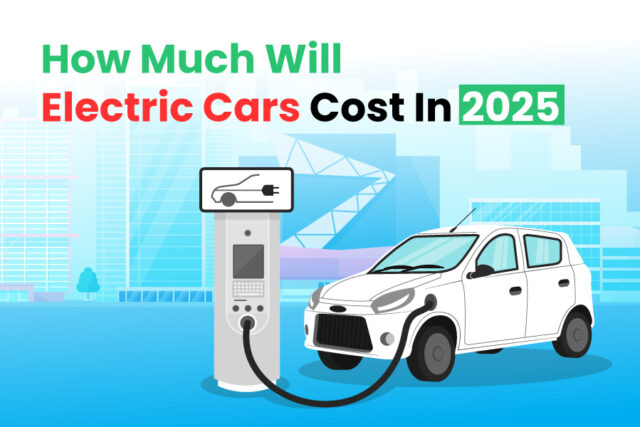Many are asking questions about EVs. These include questions like, how much will electric cars cost in 2025? There are also predictions that the price of EVs will drop massively in 2025 and beyond.
There is no denying that the high price of electric cars is why most people have yet to become EV owners. They are expensive. Additionally, insurance for EVs is higher. When you compare the cost of fueling a regular car for an extended period, you’ll discover that electric vehicles are much cheaper in the long run. Their initial cost is high, and that’s the major issue.
Here, we’ll share details about the predicted price of electric vehicles in 2025. Keep reading for more information.
How Much Will Electric Cars Cost in 2025?
Firstly, the price of electric vehicles will drop massively, starting from 2025. Reports show that the cost of electric cars by 2025 will be the same as conventional cars.
In 2025, a 200-mile EV would cost around $20,000, though it will fluctuate. However, expect EV manufacturers to lower the price of their cars and give more people a chance to own an electric vehicle. The primary reason electric cars are expensive today is because of the batteries used to power them. The cost of producing EV batteries is high. In addition, most EV makers don’t make their batteries themselves. Instead, they get their batteries from other brands.
As more and more companies start producing their batteries, EV prices will drop drastically.
How Much Will Electric Cars Cost In 2030?
Price is a massive component of adoption by a mass market. A lower price will encourage more people to purchase electric vehicles.
While most people believe EVs will be within the same price range as petrol-diesel vehicles, others claim it will be a bit lower. We expect much to remain the same regarding the price of electric vehicles in 2030. We’re expecting a price slightly lower than $20,000.
Lower production costs will encourage mass adoption of electric vehicles, which is what manufacturers are looking for. Electric cars will help our fight against climate change and make the planet safer.
So, we expect the price of EVs to drop slightly by 2030, as this would encourage many to replace their vehicles using fossil fuels with EVs.
The Benefits of Driving Electric Cars In 2025
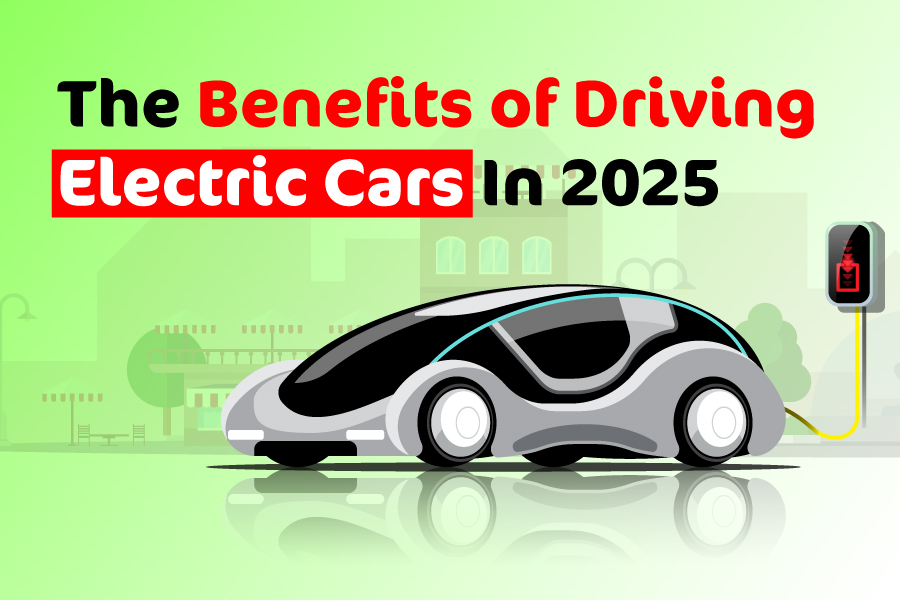
Many people are dreaming of owning an electric car. And their reasons aren’t to decorate their garage. Instead, it’s to enjoy other benefits.
Having an electric car is a significant investment. Unfortunately, only a handful of people have one because of the price point. EVs are expensive, and we can’t blame the manufacturers. The batteries cost a lot to purchase.
Here are the benefits of driving an electric car in 2025:
1: Electric cars will be cheaper in 2025:
Electric vehicles are the dream of many. Unfortunately, the price is the primary factor discouraging many from having an EV parked in their garage.
Renewable energy is the future. The fact that EVs use batteries, not fossil fuel, is a considerable advantage for potential future owners. Charging an EV is also cheaper than fueling a vehicle for a year. EV owners can even install chargers in their homes.
A good reason to purchase an electric car in 2025 is the forecasted price. Many experts believe electric vehicles will be cheaper in 2025 and beyond. Many claim the cost of batteries will drop significantly as EV manufacturers put in more effort to produce their batteries.
The world’s second EV maker, Tesla, has its battery technology and expertise. However, they still collaborate with other battery makers to meet the high demand for electric vehicles.
A Handy Tip: Tesla was the world’s largest producer of pure electric vehicles until January 8, 2024. China’s BYD has outranked Tesla as the world’s number one pure-electric vehicle manufacturer.
The increased demand for pure-electric vehicles in China, the country with the world’s second-largest population (over 1.4 billion people), is one of the factors fueling BYD’s growth. Over 40% of the vehicles sold in the country are electric vehicles.
The competition amongst EV makers will increase as more manufacturers delve into producing electric vehicles. An increase in population will help to reduce the price of EVs. EV companies are already working hard to reduce their EV production costs. So, the price of EVs will likely crash in 2025 and beyond.
If you want to own an electric vehicle without breaking the bank, you can plan for the future. Buying an electric car in 2025 will be a good decision. Imagine buying a vehicle that cost $35,000 in 2024 for $20,000 in 2025. You’ll be saving a whopping $15,000.
2: Improved air quality and better health:

Many are clamoring for public health improvement but neglect the solution before them. The solution is EV. An electric vehicle revolution will contribute to a massive improvement in air quality and health for the masses.
Diesel and gas-powered vehicles do more harm than we can imagine. How? They release harmful particulate matter into the atmosphere. And when air pollution occurs this way, public health faces a considerable threat. You’ll find people dying prematurely or getting sick occasionally.
California, the state with the highest number of EV owners, has shown the world how beneficial electric vehicles are to public health. A study conducted in the state on the impact of EVs shows a drastic reduction in asthma-related hospital visits.
Now, you can imagine the benefits a complete adoption of electric cars in California or across the country will bring. It will be massive. The health-related expenses of people will drop drastically.
One of the benefits of driving an electric vehicle is its positive impact on the air quality we breathe in. An improvement in the quality of air will make us healthier, younger, and even enjoy a longer life expectancy.
3: Economic growth and creation of new jobs:
The EV revolution is encouraging massive growth in EV jobs and the economic development of nations, most especially the United States of America. In 2020 and 2021, EV jobs grew by 26.2%.
On the other hand, a third of the global investments in electric vehicles from 2020 to 2030 will go to companies operating in the United States of America. So, the EV revolution is creating jobs and widening the economy.
The $245 billion EV investment from the bipartisan infrastructure law and Inflation Reduction Act are two critical laws that will contribute to the bright future of electric vehicles. The funds available will help to encourage the domestic production of electric cars and their batteries, as well as the construction of a charging network across the country.
The construction of the charging network will make it easier for people to charge their vehicles. You won’t need to travel long distances searching for where to charge your EV. As filling stations, we will have EV charging stations across the country in no distant time.
The adoption of EVs will allow the United States government to clean up the country’s transportation system. It will enable them to improve the country’s transportation system to a safer and healthier means: EV.
4: Electric vehicle is cheaper in the long term:
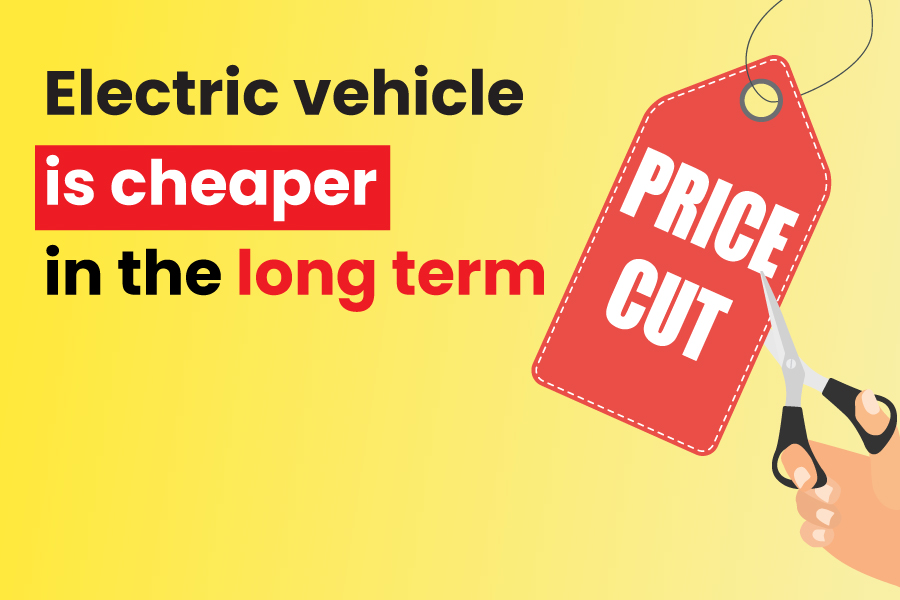
We have been stating electric vehicles are currently expensive. So, what has changed, and why are we now saying EVs are cheaper than regular cars?
The crux of the matter is electric vehicles are cheaper than gas and diesel-powered cars. The initial purchase cost is higher than regular vehicles, but the cars pay for themselves when used long-term.
Charging and maintaining an electric vehicle is cheaper than purchasing diesel or gas for a regular car.
5: Charging an electric vehicle is simple and less risky:
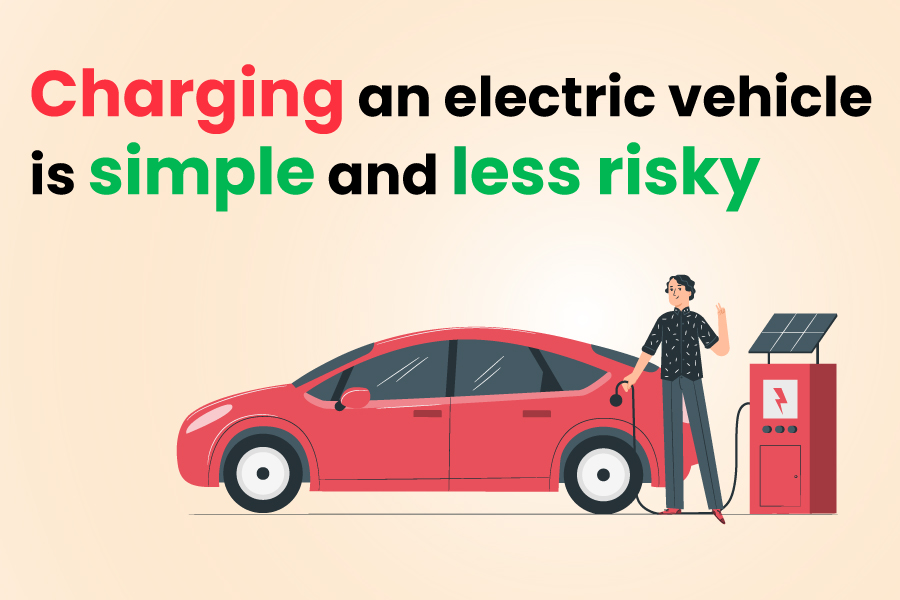
Those living in certain parts of the country know how far they must travel to get to a nearby gas station. Private citizens can’t mount a gas station around their house, unlike electric charging stations. It is dangerous, and the authorities won’t even allow it.
Running a gas station close to a residential area is risky and isn’t something the authorities will approve. However, the reverse is the case for electric vehicles.
People who own electric vehicles have charging stations mounted in their homes. This will enable them to charge their cars whenever they want. It costs around $2000 to install an electric vehicle charging station at home.
When you become an owner of an electric vehicle, you’ll stop purchasing gas or diesel. Instead, you’ll become part of the growing community of EV users, ensuring that we always breathe in quality air.
6: Adoption of electric vehicles will lead to quieter roads:
The noise population is a significant problem across the country, and one of the major causes is vehicles. Combustion engines create a lot of noise when working, contributing to noise pollution.
No one is a stranger to noise pollution’s impact on a person’s health. It can cause stress, hearing issues, sleep disturbances, and even heart diseases. How does EV help reduce noise pollution? Electric vehicles are quieter when driven at low speeds. Most manufacturers even installed external speakers on the EV cars to notify commuters of an incoming vehicle.
Electric vehicles are quieter than gas or diesel-powered vehicles when driven at low speeds.
7: EVs have low maintenance costs:
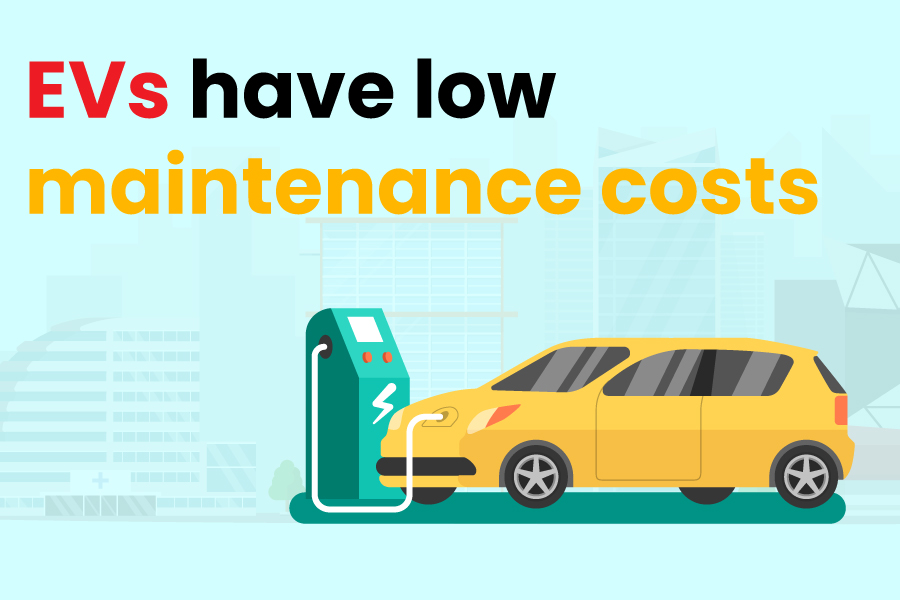
EVs are cheaper than gas- and diesel-powered vehicles in the long term. Another thing that makes electric cars attractive and a wise buy is their low maintenance costs. Electric vehicles have fewer moving parts than petrol or diesel-powered ones, making them far less expensive for people to maintain.
The annual running cost of your electric vehicle will be lower as the servicing requirements of EVs are less.
8: Climate benefits:
The world’s goal of a net zero emission by 2050 is achievable if we adopt electric vehicles. But other things need to change, too.
For example, electric generation must change. Using clean energy to generate electricity will positively impact and help the world achieve its zero-emotion plan in 20250.
Improving the batteries powering electric vehicles will also drive us towards this goal. It will make EVs more efficient and encourage more people to consider switching to EVs.
Climate change is a serious issue that poses a significant risk to our planet. So, the fight to combat climate change demands collective effort. We all must try to stop doing things that destroy our environment and put our lives in great danger.
We are all feeling the impact of climate change. It is responsible for the hotter temperature, loss of several species, food insecurity, increased drought, poverty, and more severe storms.
Our current transportation system contributes heavily to greenhouse gas emissions that are responsible for climate change. So, cleaning up the transportation system will directly impact the climate.
We can clean up the transportation system by adopting electric vehicles. A report shows ditching gas-powered vehicles for electric cars in the United States of America will cut the nation’s climate pollution by two-thirds.
Disadvantages of Driving Electric Cars
Purchasing an electric vehicle is an option a lot of people are considering. But before you splash the cash, learn about the challenges or disadvantages of driving an EV. This way, you won’t feel disappointed or shocked when the challenges unfold after purchasing an EV.
1: You’ll spend more time charging your electric vehicle:
With ICEs, you don’t spend time at the gas station. Just get the gas in the tank and continue. Unfortunately, EVs require charging. Depending on the EV model, charging station, and voltage, you’ll spend 20 minutes to 6 hours or more charging.
There are DC fast chargers, and more models are popping up now and then. But they aren’t fast enough. You still have to spend more time charging your electric vehicle than ICEs.
2: Fewer number of charge stations:
No matter how crowded a gas station is, you won’t spend hours refueling your vehicle or queuing to buy gas. Additionally, there are many gas stations in the United States of America.
The number of charge stations for electric vehicles is increasing now and then. However, we will need more to sustain the increase in electric cars. There are currently around 56,000 charge stations in the United States of America. And more is required.
Even when you arrive at a charging station, you may have to wait to charge your vehicle. The entire charging spot may have been occupied. Home charging is a great investment for electric vehicle owners. However, the challenge is that the home charging station charges slowly.
3: Range is a problem:
The range of EVs is a challenge for manufacturers. However, there has been some improvement over the years. But these improvements aren’t enough. We are still far behind.
With all the improvements made, the EV range cannot match ICEs. For instance, the Lucid Air can reach a little over 500 miles, while the Tesla Model S Dual Motor can travel 405 miles. The range these cars can travel in is decent, after all. But let’s keep in mind that these are the best electric cars on the market. The cheaper models can travel less than 300 miles.
Let’s hope that things will change in the future. Electric vehicles will have the same range as ICEs.
4: Question mark over battery longevity:
Batteries power the majority of the devices we use daily. These include phones, laptops, and even watches. And most people consider battery lifespan before purchasing some devices. Battery is the heart and brain of electric vehicles. It powers the car, just as gas powers ICEs.
EV Batteries have varied lifespans. While some in the temperate climate last for 12 to 15 years when appropriately managed, others don’t. In extreme temperatures, an EV battery’s lifespan drops massively. The battery can last for 8 to 12 years.
EV batteries are expensive. They are the primary reason electric vehicles are so expensive. So, having a long-lasting battery will be a massive breakthrough for electric vehicle owners. It will encourage more people to consider buying EVs.
Conclusion
So, how much will electric cars cost in 2025? The price of EVs will drop in 2025, according to many experts. Most experts claim EVs will have the same price as ICEs.
The price of an electric vehicle may drop to as low as $20,000. But for this to happen, many things have to change. For instance, the price of batteries needs to drop, and demand for EVs has to increase. The number of EV manufacturers has to expand to meet the demand.
An increase in EV makers will crash the price of electric vehicles. It will create competition among EV makers, encouraging them to lower prices.



